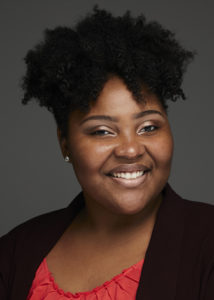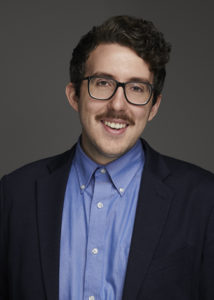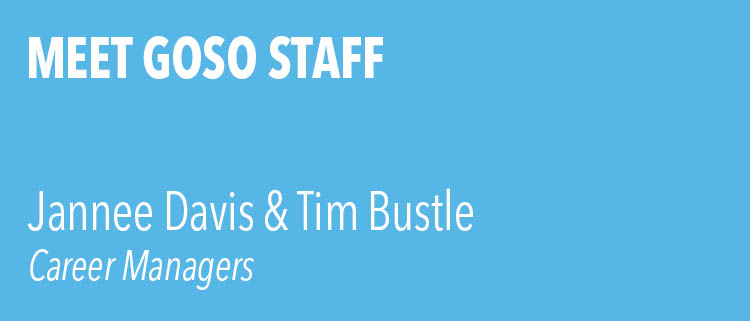Join us in welcoming Tim Bustle and Jannee Davis to the GOSO team! As Career Managers Tim will focus on our adolescent programming, which allows participants who are still in high school to attend GOSO after school; and Jannee will lead our vocational programs (i.e. OSHA, security training), which provide skills-trainings to connect our participants to better-paying jobs.
In this interview, Tim and Jannee discuss their passion for social work and its relevance to the criminal justice system.
 What brought you to GOSO?
What brought you to GOSO?
J: A year ago, I interned for Child and Family Services in the Dept. of Juvenile Justice. In their Youth Leadership Program, I connected with young people and actually visited GOSO for the first time. I was struck by how intimate and personal the GOSO environment seemed, and what an impact that made on participants I spoke with. I knew I wanted to be a part of it.
T: While in graduate school, I completed a social work internship in GOSO’s school. For me, this new full-time position is a continuation of that incredible first experience! Working at GOSO was my first social work placement, and it had a significant impact on me. I knew that I wanted to come back, and had enjoyed working with the adolescent age group. It also became evident that working with a court-involved population was important to me.
Why is social work important to criminal justice reform?
J: Our perspective is important because it helps our participants humanize their own experiences. They are individuals with their own needs and unique life stories. As social workers, we’re trained to understand complex and dynamic situations. We help participants get back on track and let them know it’s okay if it’s difficult.
T: Social workers have the ability to destigmatize the nature of justice involvement. We’re able to advocate for those who are justice-involved, by navigating and facilitating situations with them. We can make it easier for our clients to re-enter and not recidivate. We understand how trauma affects someone and are able to understand each individual’s situation more holistically.

What’s your favorite part of being at GOSO?
J: The clinical part of my role here is my favorite — I enjoy being able to provide these supportive mental health services to our guys. I love helping them build a strong mentality, which helps them become functioning and independent.
T: I love GOSO’s intimate size. It’s not a mammoth agency where everything is separate and rigid. It’s nimble and lean. Because of that, we’re able to do a lot of different things and wear many different hats while working here.
What advice would you give to someone going into social work?
J: Always put the client first. Self-determination isn’t just theory, it’s their life. No matter what you want them to do, they are making the decisions in their own lives. You can’t force someone to do something that they don’t want to do.
T: Take nothing personally. You’re an outlet for peoples’ stresses and you have to be able to hold that. You have to hear the issues and know that you can find solutions.

